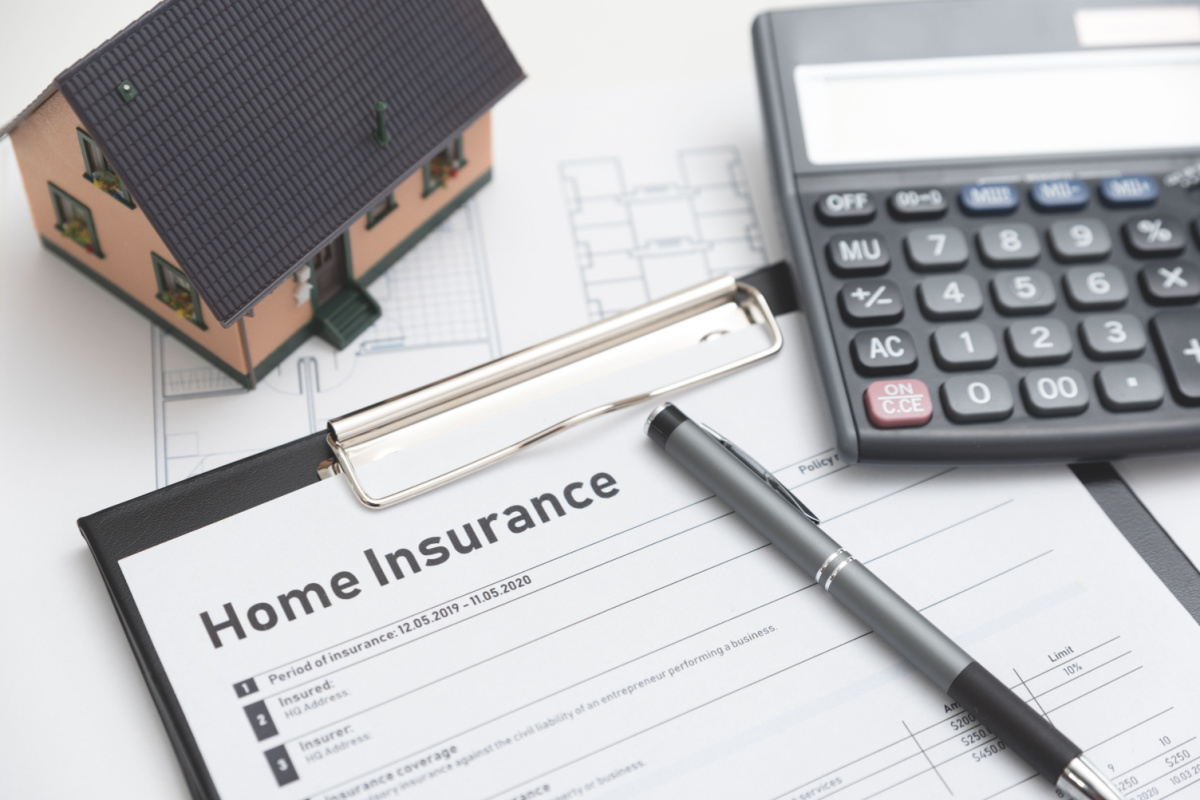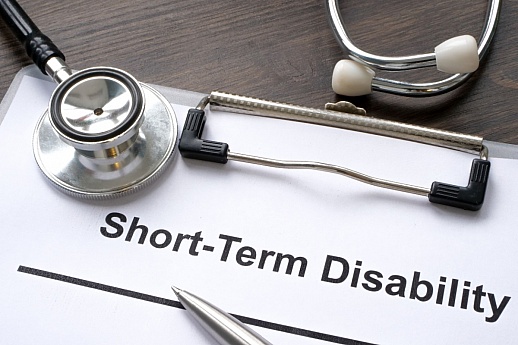Do I Need Homeowners' Insurance to Get a Mortgage?
You've just spent months house hunting, attending open houses, and negotiating deals. Finally, you've found the home of your dreams. Just when you thought the journey was over, the mortgage lender throws a curveball your way – homeowners' insurance. You start wondering, "Is homeowners' insurance required for a mortgage? And if so, why?"
This comprehensive blog will answer your questions and clear up the fog around homeowners' insurance and mortgage requirements. Let's dive in!
Mortgage Insurance vs. Homeowners' Insurance: What's The Difference?
It's common to find people interchanging the terms "homeowners' insurance" and "mortgage insurance," especially when they are new to the home-buying process. While both are closely associated with owning a home, they serve vastly different purposes, offer unique coverages, and protect different parties.
Homeowners' Insurance: Protection for You and Your Investment
Homeowners' insurance is a safety net for you, the homeowner. This type of policy comes packed with multiple coverages that secure your home, the belongings inside it, and even your personal liability. On average, homeowners' insurance costs around $1,852 per year.

Coverage Examples:
- Dwelling Coverage: If a fire devastates your home, dwelling coverage will help pay for repairs or rebuilding the home.
- Personal Property: Say a thief breaks into your home and makes off with your valuable electronics. This coverage would help you replace those items.
- Liability: If a guest slips and falls on your icy driveway, liability coverage will take care of their medical bills and any potential legal fees.
Additional Coverage Options (Endorsements):
- High-Value Items: For those prized possessions like jewelry or artwork, you may consider extra coverage tailored to protect high-value items.
- Flood/Earthquake Coverage: Standard policies typically don't cover natural disasters like floods or earthquakes. Adding this coverage helps you stay prepared for unexpected events of this magnitude.
- Sewer Backup and Water Damage Insurance: In case of water damage or sewer backup causing damage to your home, this endorsement would help you manage repair costs without sweating over the financials.
Mortgage Insurance: A Safety Net for the Lender
In stark contrast, mortgage insurance doesn't protect your interests; it's all about the lender. Specifically designed to reduce the lender's risk, this policy kicks in if you default on your loan payments.
Coverage Examples:
- Standard Coverage: If you can't make your mortgage payments and your home goes into foreclosure, the mortgage insurance would cover a portion of the lender's loss.
- Lender's Policy: In some cases, the lender might require an additional lender's policy, which will cover them against title issues or fraud. Title issues arise when there are disputes about property ownership.
For instance, if another person suddenly comes forward claiming they have a right to the property, a lender's policy would protect the lender against losses from the ensuing legal battles. On the other hand, if the borrower provides false information during the mortgage application process, the lender's policy covers the financial hit the lender would take if the loan goes sour due to fraudulent details.
Most conventional lenders will require you to purchase mortgage insurance if you pay less than 20% of the downpayment. The coverage needed varies but is usually 20% to 50% of the loan amount.
The Key Difference Between Mortgage Insurance and Homeowners’ Insurance
Homeowners' insurance protects your property and financial interests, while mortgage insurance protects the lender's investment in your home. This means that while you can choose to cancel your homeowners' insurance (although strongly not recommended), the same flexibility is not often provided with mortgage insurance unless specific conditions are met.
Is Homeowners' Insurance Included in a Mortgage?
Both homeowners’ and mortgage insurance are related to your property. But does that mean homeowners' insurance is included in your mortgage payments? The answer is no.

Homeowners' insurance is generally not included in mortgage payments and usually requires a separate policy. It's worth noting that these separate policies can often be purchased from the same insurance provider for added convenience. Some of the best homeowners’ insurance companies may offer discounts for bundling.
Some lenders may offer to manage your homeowners' insurance through an escrow account, but this arrangement typically merges your insurance and mortgage payments into a single monthly sum.
Home Insurance Requirements for a Mortgage
Navigating the home-buying process involves juggling numerous factors, such as loan approvals, home insurance requirements for mortgages, and property inspections.
One aspect you can't afford to overlook is the requirement for homeowners' insurance. Let's delve into why most mortgage lenders require this type of coverage and what that means for you.
Asset Protection: Guarding Your Investment and Theirs
First and foremost, your home isn't just your asset; it's also collateral for the lender's loan. In other words, if you default on your mortgage payments, the lender has the right to take possession of your home. Therefore, it's in the lender's best interest (and yours) to ensure the property is adequately insured against potential damage.
Consider a scenario where a homeowner doesn't have adequate insurance coverage, and a major fire damages the property. Without insurance, the homeowner might not be able to afford repairs, significantly reducing the home's value and, consequently, the value of the lender's collateral.
The Necessity of Proof
Because proof of home insurance for a mortgage is integral to the mortgage process, most lenders won't even finalize your loan until they have proof of your coverage. Typically, you'll need to present an insurance binder, a temporary document that serves as proof of insurance until your policy is formally issued.
For example, if someone applies for a mortgage and is approved, they cannot close on their new home until they provide the lender with an insurance binder confirming they have purchased adequate homeowners' insurance coverage.
Risk Mitigation: A Safety Net for Unpredictable Events
Though homeowners' insurance isn't legally mandated at either the state or federal level, having it becomes a significant consideration in areas prone to natural disasters like hurricanes, earthquakes, or floods. For instance, in Florida – where storms are frequent – windstorm coverage might be a mandated part of your insurance policy. Neglecting to have this coverage could put your mortgage application and home at risk.
Likewise, in California, where earthquakes are common, it's advisable to have additional earthquake coverage. In Louisiana, flood coverage should also be seriously considered due to the state's vulnerability to flooding.

In addition to protecting your home from natural events, homeowners' insurance also serves as a financial buffer for other unexpected scenarios, such as thefts or accidental damages.
Given these risks, you might also consider additional personal property and liability coverages. These coverages protect against losing valuable items and shield you from potential legal costs if someone gets injured on your property.
Bottom Line
The world of mortgages and insurance can be complex, but the answer to “is homeowners' insurance required for a mortgage?” is simple: Homeowners' insurance is generally a must-have if you're planning to get a mortgage. It protects your dream home and satisfies your lender's need for financial security.
So, while you're ticking off the boxes for your mortgage, make sure that homeowners' insurance is on your checklist. It might feel like just another expense, but it's an investment in peace of mind. And isn't that priceless?
Home Insurance for a Mortgage: FAQ
After laying the groundwork on the necessity and functions of homeowners' insurance in the mortgage process, you may still find yourself grappling with some questions. Not to worry; we've rounded up some of the most frequently asked questions to better understand this intricate relationship between homeowners' insurance and your mortgage.
Can I Have a Mortgage Without Homeowners' Insurance?
The short answer is that it's technically possible but highly impractical and risky. Most lenders won't consider granting you a mortgage without a homeowners' insurance policy. And even if you find a lender willing to take that risk, you should be prepared for sky-high interest rates to compensate for the added risk the lender is taking on.
Is Homeowners' Insurance Required On All Mortgage Loans?
Most of the time, yes, homeowners' insurance is a prerequisite.
Does My Mortgage Company Pay My Homeowners' Insurance?
While the idea may sound convenient, your mortgage company usually does not directly pay your homeowners' insurance premiums. Generally, it's your responsibility to secure and maintain a homeowners' insurance policy.
That said, there are instances where an escrow account might be used to manage both your mortgage and insurance payments. In such cases, you would make a single monthly payment, a portion of which is allocated for mortgage and insurance payments. Your lender then disburses these earmarked funds to pay your insurance premiums.
Do I Need Home Insurance After Paying Off Mortgage?
You might think of letting your homeowners' insurance lapse after paying off your mortgage to save money. However, remember that the risks don't go away just because you own your home outright. It's wise to maintain your coverage.
For example, if you've paid off your mortgage but let your insurance lapse, and a fire damages your property, you're solely responsible for all repair or rebuilding costs. The financial burden could be substantial, negating any "savings" you might have enjoyed by discontinuing your insurance.
Sources
- Forbes. “Average Homeowners' Insurance Costs.” Accessed Sept. 5, 2023
- The Hill. “Areas Prone to Natural Disasters.” Accessed Sept. 5, 2023
- California Earthquake Authority (CEA). “Earthquakes Are Common in California.” Accessed Sept. 5, 2023
- Bankrate. “Mortgage insurance vs. homeowners insurance.” Accessed Sept. 5, 2023



